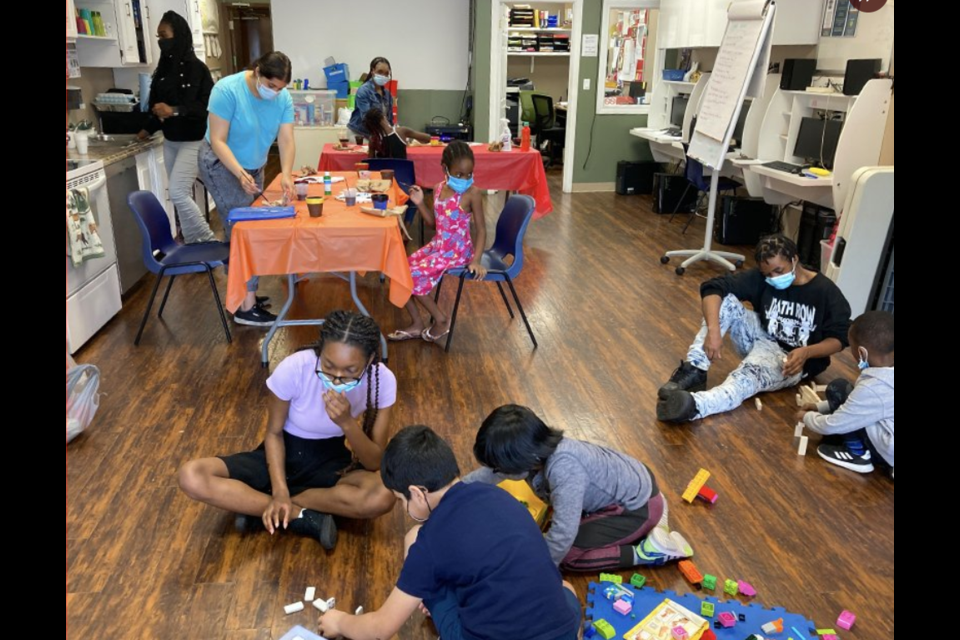York Region residents have high levels of trust and strong social networks, but disparities exist along economic and geographic lines, according to a new United Way study.
United Way Greater Toronto released its York Region social capital study July 20, examining how residents are faring in community connections. The study explores people's support networks, or “social capital,” which is associated with better well-being, mental health and access to opportunity.
The study found disparities based on factors such as economics and geography. It groups Newmarket with its northern neighbours — Aurora, King, East Gwillimbury and Georgina — with the study finding 73.6 per cent of respondents in these municipalities were mostly trusting of others, compared to 67 per cent for the region as a whole and 54 per cent of respondents across the country.
The report "does describe, from a broad perspective, social capital in York Region is strong. There is a strong trust," United Way director of research, public policy and evaluation Isabel Cascante said. "It's really helpful for us to understand. Generally, it's positive, but there are some areas of improvement across the work we do."
The online and telephone survey was conducted before the pandemic, between December 2018 and March 2019 — with the final report delayed by different priorities during the pandemic, Cascante said. The 1,217 respondents were asked questions related to the four dimensions of social capital, including social trust, social networks, civic connections, and neighbourhood support.
Besides finding York Region residents are mostly trusting, the study also found 63 per cent of respondents participated in at least one group or organization while 78 per cent donated money or goods.
As for community, over three-quarters (76 per cent) reported a very strong or somewhat strong sense of belonging to their local community, with 68 per cent agreeing neighbours were willing to help one another.
However, the study identifies some people can struggle to access the social capital they need to thrive. Respondents with household incomes under $30,000 were less likely to agree, or strongly agree, that their neighbours could be trusted (41 per cent) versus those with incomes over $150,000 (80 per cent).
Only 17 per cent of respondents with incomes under $30,000 strongly agreed that their neighbourhood was safe for children to play in, compared to 47 per cent for those making over $150,000.
“All sectors will need to continue to address systemic issues like poverty, financial insecurity, and discrimination,” the organization said.
Some disparities are also based on location. Northern municipalities, including Newmarket, had 64.2 per cent of respondents indicate a high level of trust in people of different ethnic backgrounds — compared to less than 40 per cent in the southern municipalities, including Vaughan, Markham, Richmond Hill. Confidence in institutions also differed, with northern municipalities generally having a higher level of trust in institutions.
Police were the most trusted institution, with 74 per cent of respondents indicating a high level of trust. The report said police have similar levels of trust across all municipalities, regardless of age, income or education.
“Police rely on public support, so I’m pleased that York Regional Police continues to enjoy a high level of trust among our citizens,” Chief Jim MacSween said. “Emerging social justice issues have reinforced the importance of nurturing social capital.”
The report is not without limitations. It said there was difficulty getting responses from the top three ethnic groups by population in the region — South Asian, West Asian and Chinese. United Way held community conversations with these groups later on, but it was a different methodology excluded from the data. The report recommends conducting additional research and working to disaggregate different "racialized" communities in data.
"They are the same challenges researchers experience commonly with reaching into populations that have other priorities and that are facing different barriers," Cascante said, adding it is important to reach out into those communities. "Build on networks and relationships that we have across sectors to ensure we are reaching the population who we want to learn about."
The document recommends several next steps, including addressing the systemic issues that impact social capital disparities. The report suggests all sectors could review diversity, inclusion and equity strategies.
Cascante said although the data is pre-pandemic, she is confident it can help in rebuild planning post-pandemic.
She added 89.5 per cent of people believed they could make a big difference or some difference in addressing problems in their community.
"If we can leverage that," Cascante said. "Then we're on the right direction to making that change."
The full report is available on the United Way Greater Toronto website.



